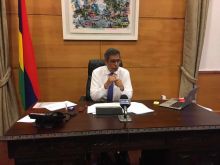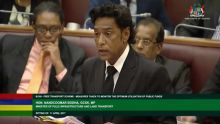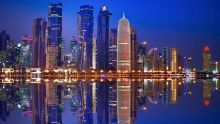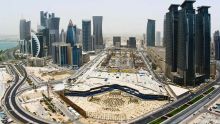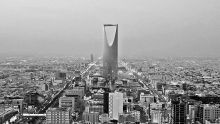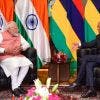
The Qatari Foreign Minister Sheikh Mohammed bin Abdulrahman bin al-Thani should be awarded a Nobel Peace Prize. He has staunchly been defending his tiny but oil-rich country's sovereignty and independent foreign policy in the wake of an “extraordinary, unprovoked and hostile blockade” launched against it by a Saudi-led coalition of Gulf States. Apart from boosting the often battered image of the Nobel Prize award itself, this will also send out a strong message to the string of despotic rulers in Saudi Arabia, the United Arab Emirates (UAE), Bahrain and Egypt.
Publicité
David and Goliath
Saudi Arabia, the giant Goliath among the Gulf States, has long had a grudge against Qatar, which looks like a pretty small David compared to its powerful, brutal and belligerent Saudi neighbour. The Qatari regime is not perfect – the same goes for Iran and even more so Turkey, its two most powerful allies in the region. But in spite of its small size, the country’s leadership has shown itself to be rather shrewd in its foreign relations and economic diplomacy. A member of the Gulf Cooperation Council, a regional six-member trade and security bloc which includes Kuwait and Oman, Qatar also has close links with Iran, Saudi Arabia’s arch enemy. The fault lines here are the Sunni-Shia divide, but not only. Put simply, Saudi Arabia does not like to be overshadowed by Qatar in the Gulf region, the Arab world, Western Europe and beyond.
And so, a fortnight after Donald Trump visited Israel and then Saudi Arabia where the maverick US President clinched a lucrative arms sales deal worth 110 billion US dollars, a Saudi-led coalition of Gulf States, Egypt and a number of African countries ganged up against Qatar on 5 June threatening to isolate it with immediate sanctions, severing all air, land, sea links with it. Two weeks later, on 22 June, they presented Qatar with the most preposterous list of 13 totally unacceptable demands which include cutting off ties with Iran, and closing down Al-Jazeera. The pretext: Qatar in their eyes has been supporting extremist groups. Coming from Saudi Arabia, that’s a bit rich, to say the least. Out of the six members of the GCC, Oman has stayed out while Kuwait has been acting as a mediator to try and solve the crisis.
Donald Trump initially took credit for what was happening before he was rebuffed by the US State and Defence Departments. Then he changed his tune and appealed to the parties concerned for a resolution of the dispute. Did he not know that there are more than 10,000 US troops stationed in Qatar? And that the US and Israel would prefer to see unity among the Gulf States against Iran? He was swiftly made to understand by many Western governments and others in the US administration that besieging Qatar in the way the Saudi-led coalition was doing would only push the tiny Gulf State into the hands of Iran.
After what can be seen as a “declaration of war” against Qatar on 5 June, Iran and Turkey came to the rescue of Qatar with plane loads of food and other items. The economic blockade will affect Qatar, but the Qatari government has been quick in working out “alternatives”. It went on a diplomatic offensive which seems to be winning dividends and curbing somewhat the aggressive stance of the Saudis.
Qatar’s diplomatic offensive
Speaking at Chatham House in London on Wednesday 5 July, Sheikh Mohammed bin Abdulrahman al-Thani said Saudi Arabia and others were effectively asking Qatar “to curtail free expression, hand individual people over to torture, reduce its defence capabilities, go against international law, outsource its foreign policy to Riyadh and Abu Dhabi, literally sign an open cheque to the blockading countries to pay an unlimited amount of money described as compensation. The ultimatum did not only demand the shutting down of Al-Jazeera, but outlets based here in the UK that provide a free press for the people of the Middle East.” Then, he added that “the blockading countries were demanding we must end our sovereignty as the price for the ending of the siege – something they knew Qatar would never do.”
In 2022, Qatar is due to host the World Cup – the stakes are high – and the country does not want to be hampered in its efforts to show its best for such a prestigious international event. The Saudis persist in accusing Qatar of supporting terrorism… But Qatar has been helping the Palestinians trapped in the Gaza Strip, and the democratically elected government of Mohamed Morsi before it was toppled by the then General Al-Sissi with the help of the Americans and quite possibly Israel too. Qatar’s relations with Iran are frowned upon. But the country shares a gas field with Iran, and clearly Doha has to work closely with the Teheran government. As the economist and historian Georges Corm says :
« Heureusement que le ridicule ne tue pas : depuis la première guerre d’Afghanistan, les pays du Golfe comme les Etats-Unis ont armé et entretenu des groupes de prétendus « djihadistes » qui ont été déployés d’un pays à l’autre, en fonction des intérêts géopolitiques de Washington et de ses alliés. Ceci dit, ce n’est pas la première crise entre l’Arabie Saoudite et le Qatar, qui ont en commun comme doctrine d’Etat le wahhabisme. Et qui ont été ces dernières années en compétition très forte, en particulier depuis les soulèvements arabes de 2011, pour recueillir le fruit du détournement de ces révoltes en soutenant différentes mouvances de l’islam politique. L’influence du Qatar, via notamment ses centres d’études, ses think tanks et sa chaîne de télévision al-Jazeera, a visiblement pris trop d’importance pour une Arabie Saoudite qui cherche aujourd’hui, sans aucun complexe, à affirmer son emprise absolue et totale sur les pays arabes et aussi tous les Etats se définissant comme musulmans. » (Humanité.fr, 16/6/17)
The monarchs in the Gulf States fear the influence of Al-Jazeera, in particular Al-Jazeera Arabic in contrast to Al-Jazeera English, which they want shut down. Al-Jazeera, the brainchild of the Qataris, allows for pluralism as it provides a much-needed and useful platform for human rights activists and dissidents' views and all those fighting under very difficult circumstances for a more open and democratic society in their country and a decent quality of life for all. Since its inception 21 years ago, Al-Jazeera has been able to profoundly disrupt the hegemony of news emanating coming from the West and its success is such that it is more popular than the BBC, CNN, France 24 and RT. It is broadcast to 220 million households in the Arab world, and thus is potentially watched by some 600 million viewers. The autocratic regimes led by the Saudis fear that ultimately they could be overthrown with such freedom of expression. They certainly do not want to see any more Arab Spring within their kingdoms.
6 July 2017

Notre service WhatsApp. Vous êtes témoins d`un événement d`actualité ou d`une scène insolite? Envoyez-nous vos photos ou vidéos sur le 5 259 82 00 !













